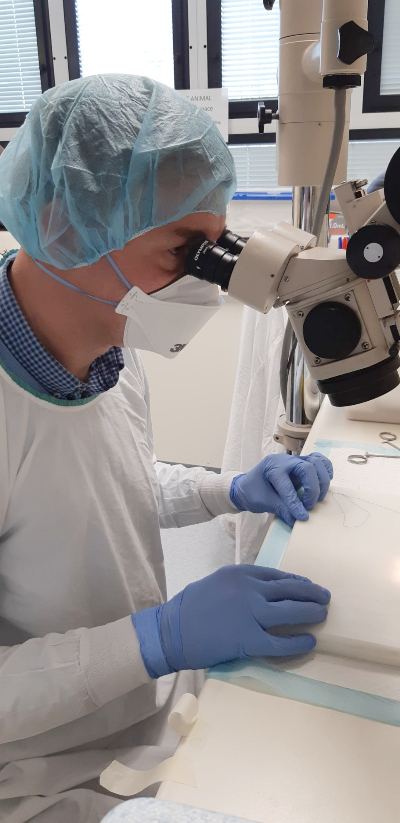
A breakthrough Australian study has brought about a major paradigm shift in our understanding of the immediate and chronic inflammatory changes that occur following an injury to the central nervous system, i.e. the brain and spinal cord.
A/Professor Marc Ruitenberg, one of SpinalCure Australia’s Research Fellows and a co-author on the paper, said the discovery was of major significance for finding ways to better treat and repair, not just the brain, but also spinal cord injuries.
“Inflammation is a necessary part of any successful wound healing process, including in animals like salamanders, which have always spoken to our imagination as they can successfully regenerate themselves”, he said.
“For reasons that we still do not fully understand, in us humans and also other mammals that do not have this ability, the inflammatory response becomes derailed and causes further damage”.
“Much of the research to date has focused on this dark side of inflammation”, A/Professor Marc Ruitenberg said.
“This new study now shows that inflammation is not always bad and also that activated microglia – a type of immune cells that lives in our brains and spinal cords – do not necessarily cause more damage after injury. Rather, they more so appear to lack the ability to help support the nervous system to regenerate itself”.
“The exciting thing is that we have discovered how these cells can be manipulated into doing just that. We can now exploit that knowledge to try and repair spinal cord lesions, and also study for how long after injury we can do this”, A/Professor Ruitenberg concluded.
The study, which was conducted at the University of Queensland, was published in Cell, (DOI: 10.1016/j.cell.2020.02.013).
For further information please see the UQ press release.
